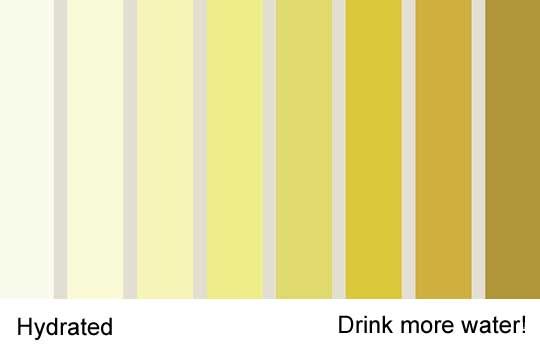Bladder herbs

Herbal remedies for bladder infections
Herbal teas are very useful when treating the bladder. They are easy to prepare, work quickly, and are inexpensive. Follow these tips and soon you bladder will be in tip top shape:
- Use antiseptic herbs like yellowroot to reduce bacteria.
- Use diuretic herbs like corn silk to increase urine flow.
- Use soothing herbs like marshmallow to reduce painful inflammation.
- Use Chinese herbs like horsetail for an over-active bladder.
Increasing urine flow is especially important during the last stages of healing. Peeing helps flush out toxins and expels dead bacteria.
To avoid dehydration, always drink plenty of water when taking diuretic herbs. Avoid orange juice and fresh lemonade while healing from urinary problems. Citric acid can cause irritation to already inflamed tissues.
Antibiotics can cause bladder problems.
Causes of bladder and urinary tract infections range from poor hygiene to overuse of antibiotics.
Prescription antibiotics kill good and bad bacteria. Taking them can really upset the delicate balance in our urinary systems. After taking a run of antibiotics, people often notice an increase in bladder infections.
Consuming active probiotics like those in yogurt and fermented pickles can help restore good bacteria. Also, it doesn't hurt to question your doctor when you are given antibiotics. Skip them if at all possible and look for a natural alternative.
Antibiotics can also weaken the immune system. When taking antibiotics, always supplement your diet with immune building herbs like astragalus.
Eighty-five percent of bladder infections are caused by Escherichia coli (E. coli) bacteria.
This bacteria is spread from the rectal area when wiping the wrong way with toilet paper. Always wipe from front to back.
If this is not possible due to arthritis or some other reason, then do the best you can. Cleaning the area with witchhazel wipes to remove bacteria is also a good option. Do this as a last step to avoid infection from E.coli.

Yeast in the bladder
Reoccurring urinary infections can be a nightmare. Over use of antibiotics can cause bladder infections and problems like yeast overgrowth. Known as candidiasis, when yeast invades the bladder and urinary system, it causes pain, itching, and a funny smell.
Symptoms are a lot like a bladder infection but since yeast is more like a fungus, antibiotics just make it worse.
When antibiotics seem to offer little relief (they don't kill yeast), try herbal remedies.
Herbal remedies have been time-tested over centuries and usually have no side effects when used properly. Read about using herbs to treat yeast infections.
Massage and essential oils can help bladder problems.
Use sandalwood essential oil, juniper essential oil, cypress essential oil, thyme essential oil, eucalyptus essential oil, or lavender essential oil diluted with olive or almond oil as a carrier and gently massage stomach area.
These essential oils can also be used in an herbal bath.
For associated back pain, try applying a hot comfrey compress across the lower back.
Other causes of bladder problems
Venereal disease, endometriosis, stress, contraceptives, kidney malfunction, food allergens, aluminum cookware, constipation, yeast overgrowth, female deodorant products, and aging can all cause bladder problems.
Bladder infections can also be caused by waiting too long to urinate. The bladder is a muscle that stretches when full and shrinks when empty.
“Holding it” can cause the bladder to stretch past its capacity, eventually trapping old urine in the bladder resulting in bacterial growth.
To keep the bladder healthy, keep the urethra area clean and allow air to flow freely whenever possible.
Do you have access to a private patio or deck? Baring it all to the sunshine for a few minutes can help keep things healthy.

Herbal remedies like yellowroot can help.
Bladder infections and many urinary disorders can be treated with herbal remedies. Various herbs are chosen according to their ability to reduce inflammation, soothe pain, repair damage, and flush out toxins.
Yellowroot tea is especially suited for treating the whole urinary system. We offer it for sale in our store so check it out.
At the first sign of a urinary or bladder problem, drink yellowroot or echinacea tea and increase your urine flow by drinking lots of water.
Chamomile tea, corn silk tea, dandelion tea, nettle tea, and fennel seed can help increase urine flow and reduce the risk of edema (swelling due to water retention).
Other herbs that may help include uva-ursi, parsley, basil, ginger, goldenrod, juniper, goldenseal, and Oregon grape.
Add flax seed oil, blueberries, watermelon, green drinks, carrots, beets, cucumbers, asparagus, broccoli, and yogurt to the diet. Not only your bladder, but your whole body will benefit.
Stones can develop in the bladder.
Urinary stones in the bladder call for gravel root (Joe Pye Weed), parsley, corn silk, cleavers, and couch grass. In extreme cases, or when there is lots of pain or high fever, seek emergency care.
Cranberry juice is a well known remedy for bladder infections.

Cranberry juice, like yellowroot tea, prevents most bacteria from sticking to the bladder walls. Cranberry juice contains natural antibiotics and is an effective diuretic.
Cranberries, even though they are sour, contain small amounts of citric acid and are good for the bladder and urinary tract. Choose 100% cranberry juice when experiencing any type of urinary problem.
Be sure not to buy anything labeled “cocktail” as it contains lots of sugar and apple juice or other additives. Try shopping at a health food store and reading food labels to find pure cranberry juice.
Avoid any juice with high fructose corn syrup and citric acid. Pure cranberry juice can help heal and prevent urinary tract disorders. Drink 16 ounces spread throughout the day for best results.
Also try D-Mannose for bladder and urinary infections.
D-Mannose can be purchased in capsule form at health food stores. Follow directions on the package. D-Mannose works when other supplements, herbs, and prescription pills don't.
If you suffer from a leaky bladder, bed wetting, or urinary conditions besides bladder infection, then read herbs for urinary problems.
Watch you diet
Sugar, carbonated drinks, concentrated starches, fried foods, artificial sweeteners, salty foods, pasteurized dairy products, and red meat all aggravate bladder problems.
Yeast products should be avoided during healing stages of bladder infections.
A little lemon or lime is OK but don't overdo.
Other fruit acids can help.
Cranberries have lots of benzoic acid. Apples have malic acid. Grapes have tartaric acid. All of these acids are good for the urinary tract and the whole body.
Fruit acids prevent reoccurring bladder infections by keeping the urine too acidic for bacteria like E. coli to survive. These acids do not irritate the urinary system.
Eat more plums and blueberries to increase acidity. Also add garlic, nasturtium leaves, rose hips, papaya, and carrots to the diet.

Urine color can help determine if you need to drink more water. Staying hydrated helps keep the bladder healthy.
Old-timey bladder infection remedy
An old remedy for bladder infection is to immediately take one teaspoon of baking soda in a glass of water followed by 8 to 10 more glasses of water throughout the day. White wine at night is also considered beneficial.
Tips for bladder health
Drink plenty of water to stay hydrated.
Don't wait! Pee when the urge strikes.
To avoid bladder infections, urinate as soon as possible after sexual intercourse. Even just a few drops pushes out harmful bacteria.
Never use colored toilet paper. The dyes can be very harmful.
Beware most bubble baths which can have questionable ingredients. Use a few drops of your favorite essential oil instead.
Women suffer more bladder infections than men.
To reduce the chance of a bladder infection, always urinate as soon as possible when you have the need to go.
Take probiotics for urinary health. They are not just for the stomach and colon!
Drink eight glasses of water every day. Do not douche.
Wipe from front to back (this advise is worth repeating).
Itchy private parts?
Is your bladder infection causing itching? Itching can be relieved with an application of olive oil, rosemary essential oil, and tea tree oil. Add lavender essential oil for added benefits.
*Do not use uva-ursi for more than two weeks. Do not use uva-ursi if you have kidney disease. Avoid remedies containing dandelion if taking blood pressure or heart medicine.
Always consult with a health care professional before taking any herbal remedy especially if pregnant, nursing, or taking other medicines.
Sources:
https://www.ncbi.nlm.nih.gov/pmc/articles/PMC7498302/
https://www.ncbi.nlm.nih.gov/pmc/articles/PMC6750343/
https://www.ncbi.nlm.nih.gov/pmc/articles/PMC6963539/
Blessings to you and yours!
Thanks so much for reading my blog. Jan.

*Note - the information on this website has not been evaluated by the Food and Drug Administration.
© 2005-2024 website design and content by Janice Boling